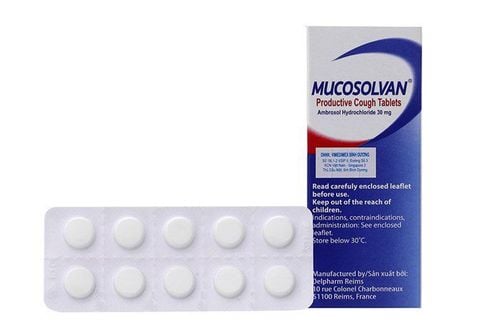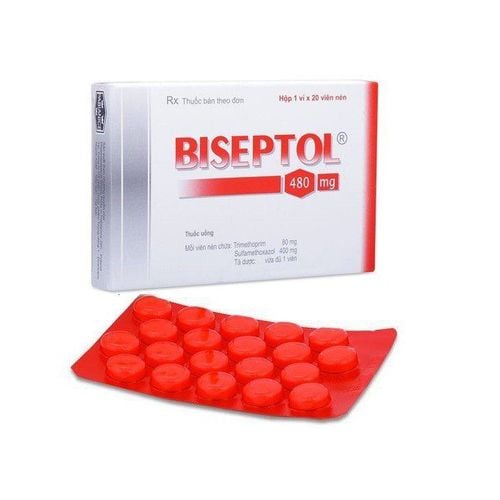This article was prepared under the professional guidance of physicians from the Department of Gastroenterology and Hepatology at Vinmec International General Hospital.
Currently, there are several effective and cost-efficient methods for treating colitis at home, utilizing natural remedies, or patients may consider modifying their lifestyle and implementing psychotherapeutic strategies alongside medical treatment. The following article outlines several simple and readily applicable methods that patients can implement at home.
1. Overview of colitis
When mentioning gastrointestinal diseases, colitis cannot be ignored, a disease that is increasingly common in today's busy society. Unscientific diets, work and life pressures are the main causes of this condition. In addition, unhygienic eating and processing habits, especially eating out, as well as using food of unknown origin also contribute to increasing the risk of disease.
Patients with early-stage colitis often have symptoms of abdominal pain, digestive disorders, diarrhea, the disease is easy to relapse, especially when eating strange foods, raw foods, dirty food, stale food...
Acute colitis, if not detected and treated promptly, can progress to a chronic condition, severely impacting health. Therefore, patients should proactively engage in treatment and prevention by implementing medical interventions in conjunction with home treatment of Colitis as soon as symptoms manifest.
2. Nutritional regimen to support the management of colitis at home
In addition to common symptoms such as abdominal pain and diarrhea, patients with colitis are at a heightened risk of malnutrition due to issues such as food intolerance and anorexia… Therefore, it is essential for patients to adequately supplement their diet to ensure proper nutrition while also supporting gastrointestinal function.
Below are several types of foods that patients with colitis should prioritize in their daily dietary regimen:
- Foods Rich in Omega-3: Omega-3 provides numerous benefits for patients with colitis: it helps to reduce inflammation and enhance beneficial gut bacteria. Omega-3-rich foods include mackerel, salmon, oysters, herring, and flaxseeds…
- High-protein foods: To ensure adequate protein intake for the body, patients must increase protein consumption in their diet. Protein can be found in foods such as lean meats, eggs, cereals, and legumes.
- Probiotics: In the various home remedies for treating colitis, many patients often overlook the supplementation of probiotics. This is a regrettable mistake, as probiotics play a crucial role in maintaining the balance of the gut microbiota.
- Nutrient-dense foods rich in vitamins and minerals: Fruit juices provide vitamins, minerals, and electrolytes, contributing to enhanced intestinal health and supporting effective digestive system function.
- High-fiber foods: Patients should supplement fiber intake from foods such as avocados and squash… to alleviate constipation. However, if the patient is experiencing diarrhea, it is advisable to temporarily reduce or completely eliminate fiber until diarrhea subsides.
When applying home remedies for irritable bowel syndrome, in addition to incorporating various foods, patients should be cautious to avoid certain types of alimentos:
- Patients with ulcerative colitis should refrain from consuming carbonated beverages, alcohol, caffeine, and stimulants such as tobacco, as these substances may exacerbate the condition of ulcerative colitis.
- Bacteria, particularly parasites found in raw foods such as salads, raw meat dishes, blood pudding, and fermented pork, may infiltrate the gastrointestinal tract and cause infections if ingested by patients.
- Patients with colitis should limit consumption of milk and dairy products, as these may exacerbate diarrhea symptoms.
- Excessive intake of foods high in sugar, such as candies and soft drinks, can result in symptoms such as heartburn, bloating, and prolonged diarrhea.
- Foods high in fats and oils, spicy seasonings (chili, pepper), and fermented items can impose additional strain on the digestive system.
Considerations for establishing a dietary regimen as a method for managing colitis at home:
- It is advisable to select soft, easily digestible foods to minimize the burden on the colon.
- Dividing meals into smaller portions throughout the day can help reduce the strain on the digestive system.
- Adequate hydration (1.5 - 2 liters daily) facilitates optimal colon function.
- Adhering to the dietary guidelines recommended by a physician is crucial in preventing the progression of the disease and minimizing the risk of recurrence.
3. Methods for home treatment of colitis using various herbal remedies and traditional medicines
In addition to medical treatment, patients with colitis may consider additional methods for home treatment of colitis using herbal teas, plant leaves, or traditional medicines as follows:
3.1. Home Treatment for Colitis Using Aloe Vera
Due to its potent anti-inflammatory and antibacterial properties, aloe vera is regarded as an effective home remedy for colitis. Additionally, aloe vera provides dietary fiber, essential vitamins, and minerals, supporting intestinal health and improving digestive function. The gel from aloe vera also alleviates discomforting symptoms such as abdominal pain, diarrhea, and dyspepsia in patients.
The method of application is relatively straightforward: remove the skin, rinse the gel to reduce the sliminess, blend it with warm water or honey, and consume.
Caution: Aloe vera latex has a beneficial effect on bowel movements; however, it should not be used by individuals with hemorrhoids, ulcerative colitis, Crohn's disease, irritable bowel syndrome, intestinal obstruction, or other gastrointestinal disorders.
3.2. Turmeric
Curcumin, the principal bioactive compound found in turmeric, exhibits notable properties: it inhibits the proliferation of pro-inflammatory substances and modulates the immune system, thereby diminishing inflammatory responses and alleviating pathological symptoms.
Additionally, curcumin possesses potent antioxidant capabilities, safeguarding cells from the detrimental effects of free radicals. Consequently, curcumin may reduce the risk of damage and inflammation within the colon.
3.3. Honey and Turmeric
Both turmeric and honey possess antimicrobial and anti-inflammatory properties, as well as support for the restoration of the colonic mucosa. Therefore, honey and turmeric powder can be combined to form encapsulated tablets for therapeutic use.
3.4. Black Sesame
Black sesame, characterized by its anti-inflammatory properties, rich antioxidant content, and Omega-3 fatty acids, is effective in improving the condition of ulcerative colitis. The simplest method of utilizing black sesame for therapeutic purposes involves toasting the seeds and consuming them alongside rice. However, for optimal results, patients should integrate this dietary approach with conventional medical treatment.
3.5. Ginseng
Due to its natural anti-inflammatory compounds, ginseng effectively reduces inflammation and alleviates symptoms of colitis. Additionally, ginseng supports the enhancement of digestive function and nutrient absorption, thereby helping to maintain balance within the gastrointestinal system, which subsequently lessens uncomfortable symptoms such as abdominal pain, diarrhea, and constipation.
3.6. Walnuts
Walnuts provide numerous essential nutrients, including fiber, vitamin E, omega-3 fatty acids, alpha-linolenic acid, linoleic acid, selenium, and amino acids, contributing multiple benefits for colon health, such as improving gut health, enhancing immune resistance, reducing inflammation, and alleviating symptoms of colitis. Moreover, walnuts play a protective role in shielding cells from the damaging effects of free radicals and effectively improving colonic damage and inflammation.
3.7. Psyllium Seeds
Psyllium seeds serve as a source of natural anti-inflammatory agents and are abundant in dietary fiber, supporting gastrointestinal health and maintaining balance within the gut microbiota. Due to their rich content of vitamins, minerals, and antioxidants, psyllium seeds also contribute to enhancing the immune system and restoring equilibrium to the digestive tract.
3.8. Guava Leaves
Guava leaves are notable for their natural anti-inflammatory compounds such as flavonoids, polyphenols, and lignans, along with a significant amount of both soluble and insoluble dietary fiber. They not only exhibit antibacterial properties but also offer numerous health benefits including pain relief, control of diarrhea, and mucosal tightening of the colon, making them an effective home remedy for colitis. Additionally, guava leaves provide vitamin C, vitamin A, potassium, calcium, and magnesium to improve immune function and balance digestive health. For administration, patients may prepare an infusion of fresh guava leaves or mix powdered dried guava leaves with water for consumption.
3.9. Vietnamese Bitter Herb Leaves
Vietnamese bitter herb leaves, characterized by their cooling properties and bitter taste, are rich in various natural anti-inflammatory compounds (flavonoids, polyphenols) and dietary fiber, and are recognized as a valuable herbal remedy. Due to their antibacterial characteristics, these leaves can effectively alleviate uncomfortable symptoms associated with colitis, such as bloating and indigestion. Moreover, with their abundant levels of vitamin C and beta-carotene, Vietnamese bitter herb leaves protect colonic cells and tissues from oxidative stress induced by free radicals. Specifically, these leaves possess the ability to inhibit harmful bacteria in the intestine, contributing to inflammation reduction and the maintenance of a balanced gastrointestinal microbiota. The preparation of Vietnamese bitter herb leaves for therapeutic purposes is relatively straightforward: After thoroughly washing and finely chopping, patients can mix the leaves with egg yolk for frying or steaming.
3.10. Vối Leaf
Vối leaf possesses strong antibacterial properties due to antibiotic-like active compounds, which help protect the intestinal mucosa, stimulate digestion, and alleviate pain caused by colonic spasms. Therefore, vối leaf may be utilized as an effective home remedy for colitis by steeping the leaves and consuming the infusion as a substitute for plain water daily.
3.11. Ginger Rhizome
Ginger, not only a common spice in the kitchen but also a valuable medicinal herb in traditional medicine, is particularly beneficial for patients with colitis due to its characteristic warming properties. The method of using ginger for individuals with colitis is quite simple: wash the ginger rhizome and houttuynia leaves, chop the ginger rhizome finely, then cook it with water and houttuynia leaves. The infusion of ginger and houttuynia should be consumed throughout the day to improve the condition.
3.12. Lotus Root
Lotus root is renowned for its high fiber content, which supports effective digestive system function and enhances beneficial gut flora, thereby preventing constipation and diarrhea. Research findings suggest that the components within lotus root are very effective in supporting the treatment of colitis. A straightforward preparation method involves cooking lotus root porridge and consuming it 2-3 times per week to improve the condition.
3.13. Fig
Similar to lotus root, figs are also a rich source of fiber, assisting in the management of diarrhea, constipation, and colitis. The method of using figs as a home remedy for colitis involves roasting the figs until slightly charred, followed by steeping them in water and consuming the infusion. To achieve optimal results when using herbal remedies as a form of home treatment for colitis, patients need to remain persistent as most of these herbs primarily provide symptomatic relief rather than complete cure.
4. Management of Colitis at Home through Modification of Exercise and Lifestyle
4.1. Engaging in Light Physical Activity
Ulcerative colitis, a chronic gastrointestinal disorder, not only presents uncomfortable symptoms related to the intestinal tract but also harbors the potential for long-term anxiety and depression. Regular physical activity yields considerable benefits for individuals with ulcerative colitis as well as for many other health conditions. For patients with colitis, consistent exercise facilitates more effective digestive function, regulates bowel motility, and consequently enhances nutrient absorption. Furthermore, physical activity helps to improve mood and reduce stress…
Individuals suffering from colitis may consider the following suitable forms of exercise to ameliorate their condition:
- Walking briskly for 20-30 minutes daily aids in enhancing intestinal peristalsis and mitigating constipation.
- Cycling for 10-15 minutes each day also contributes to improved digestive health.
- Yoga, incorporating breath control, relaxation, and twisting movements, helps alleviate symptoms such as abdominal pain due to bowel spasms, indigestion, and bloating.
4.2. Enhancing Psychological Well-Being
Stress is recognized as a primary contributor to the onset and exacerbation of colitis. When the body is subjected to persistent stress and anxiety, the susceptibility to colitis increases. Therefore, employing psychological strategies to manage stress represents an effective home remedy for colitis. Some methods include:
- Ensuring adequate rest is crucial for patients. Individuals should allocate brief intervals for relaxation to mitigate episodes of headaches, dizziness, and to enhance concentration. Maintaining a consistent sleep schedule is also an effective approach for improving overall health.
- In addition to medical methods, organizing and managing tasks presents an effective strategy to alleviate stress, thereby limiting its adverse effects on the colon.
- Meditation and deep breathing techniques are beneficial for mental health, facilitating relaxation of the nervous system and subsequently improving digestive function. Dedicating 5-10 minutes to deep breathing exercises every 1-2 hours of work allows the brain to decompress.
Currently, there are numerous methods for home treatment of colitis, particularly when mild symptoms first appear. For severe cases and patients undergoing medical treatment, implementing these measures can help alleviate uncomfortable symptoms while simultaneously promoting better colon health.
To arrange an appointment, please call HOTLINE or make your reservation directly HERE. You may also download the MyVinmec app to schedule appointments faster and manage your reservations more conveniently.








